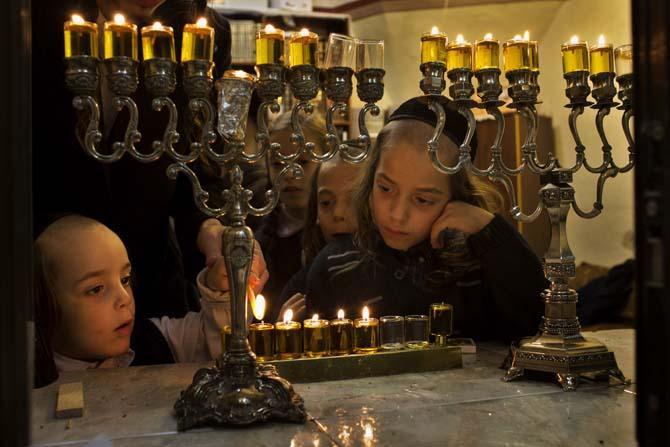Jewish customs and holidays in the United States can be easily misunderstood by a population largely made up of gentiles. Last Thursday marked the first day of Hanukkah, an eight-day celebration of Jewish history that goes back thousands of years. Although Louisiana doesn’t house a large Jewish population, some at the University who believe understanding Hanukkah is key to appreciating the holiday season.
Trevan Hatch, a Ph.D. student in family studies focusing on Jewish family life, said the Hanukkah portrayed to the public doesn’t do justice to the true meaning of the holiday.
“A lot of Americans hear Hanukkah and their first thought might be Adam Sandler singing funny songs,” Hatch said. “There is more to it than giving gifts and lighting candles.”
Hatch said the origins of Hanukkah go back to about 200 years before Christ, when the Greek king Antiochus IV raised taxes on the Judeans and prohibited Jews from worshiping in their temple. Soon after, Jewish rebels waged a guerrilla war and eventually took back their temple and rededicated it on a day that corresponds to December in the Roman calendar, he said.
“Hanukkah is meant to celebrate the rededication of the temple,” Hatch said. “In Judaism, there was no place more important than their temple.”
Hatch said a common misconception about Hanukkah is that it is the spiritual equivalent of Christmas.
“Passover is still the most important spiritual day for many practicing Jews,” Hatch said. “What sets Hanukkah apart is that it appeals to both religious and secular Jews because it celebrates Jewish history and heritage more than anything else.”
Hatch said understanding the origins of Hanukkah is important because other predominant religions in the U.S., like Christianity, owe a lot of their history to Judaism.
“If you are Christian, you should learn about Hanukkah because that temple they took back over and rededicated is the same one Jesus came to 200 years later,” Hatch said. “There is a saying that without Hanukkah, there would be no Christmas.”
This holiday season, Hatch said he hopes Hanukkah can be appreciated as an important historical holiday and others will learn from it.
“Learning about other religions and cultures is so important,” Hatch said. “In our country, there are so many from other religions who share a common history with Judaism. A lot can be learned from educating yourself about the world around you.”
Jewish holiday remains misunderstood
December 2, 2013
Members of the Kraus family, a Jewish ultra-orthodox family, light candles during the Jewish holiday of Hanukkah in Jerusalem’s Mea Shearim neighborhood, Monday, Dec. 2, 2013. (AP Photo/Bernat Armangue)





